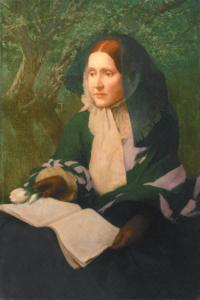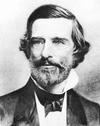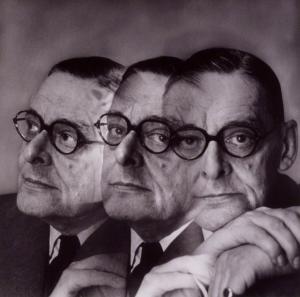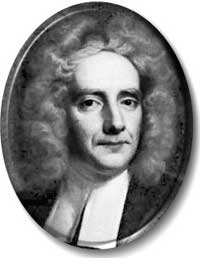As it happens today is both our American Memorial Day and Julia Ward Howe’s birthday. Here’s something I wrote about the remarkable Ms Howe a few years back. Tweaked ever so lightly. It covers a bit of who she was, her religion, her politics. Feels like it might be worth a read today…
JULIA & SAMUEL
A Meditation on Liberal Religion in an Age of Crisis
James Ishmael Ford
19 October 2014
First Unitarian Church
Providence, Rhode Island
Text
I went to bed that night as usual, and slept, according to my wont, quite soundly. I awoke in the gray of the morning twilight; and as I lay waiting for the dawn, the long lines of the desired poem began to twine themselves in my mind. Having thought out all the stanzas, I said to myself, ‘I must get up and write these verses down, lest I fall asleep again and forget them.’ So, with a sudden effort, I sprang out of bed, and found in the dimness an old stump of a pen, which I remembered to have used the day before. I scrawled the verses almost without looking at the paper.
Julia Ward Howe
It was the summer of 1841, and New York heiress Julia Ward was spending the summer with her sisters and a friend in Boston. She was beautiful, brilliant, vivacious, and apparently pretty much always had a trail of gentlemen admirers in her wake. She was a keen observer of the day, particularly interested in literary and spiritual issues and her essays were published in both the New York Review and the Literary and Theological Review. One day her friends the poet Henry Wadsworth Longfellow and the young law professor just returned from several years in Europe, Charles Sumner suggested a perfect outing for a lovely Summer day, going to Perkins Institution to visit the remarkable Laura Bridgman. The two men added by way of encouragement how there was even a chance of meeting the renowned Dr. Samuel Gridley Howe who was Sumner’s close friend.
A decade before Dr. Howe, already famous as a hero of the Greek Revolution, had returned home and been given charge of what was then called the Perkins Institute for the Blind. Within a few years he determined that he could in addition to his care for blind children’s education, also teach deaf blind children language, something that had never been done before, and an idea that was universally believed to be impossible. Laura Bridgman was his proof to the world that it could be done. It can be fairly said Samuel Howe gave her not only the gift of language, but with it her very humanity. This event caught the world’s imagination. And in that summer of 1841, excepting only Queen Victoria who had been crowned four years before, at the age of ten Laura Bridgman was the most famous female in the world.
(As an aside, many years later, when Mrs Keller was at her wits end about what to do for her daughter, she read Charles Dickens’ account of meeting Laura Bridgman in his American Notes, and wrote to Perkins asking for help. They sent her Anne Sullivan. But all that, starting with Dicken’s visit is later, and really, another story, entirely.)
That Summer day the little band of Julia, her sisters, the poet and the law professor were sitting with Laura Bridgman talking, when Sumner pointed to the window, telling them, “Oh! Here comes Howe on his black horse.” Many years later, Julia would write, “I looked out… and beheld a noble rider on a noble steed.” His friends referred to him as “the Chevalier,” as he had been awarded the title Chevalier of the Order of St Savior by the Greek king, and he absolutely looked the part. He was physically imposing, tall, blue-eyed and wore a beard and his black hair long. As with many other young women before her, Julia was immediately smitten with the incredibly handsome doctor riding his equally impressive horse. Probably the best biography about him is titled “The Manliest Man.” You get the picture.
The difference was he appears to have been immediately taken with her, as well. There was, however, an eighteen-year gap in their ages, and so there was some opposition within her family. But in the end all agreed the beautiful heiress and the dashing doctor, both clearly brilliant and equally engaged in the great questions of the day were a perfect couple.
Now, starting in the late twentieth century biographies have focused in on the harder parts of their marriage. The Chevalier, while he had put his life on the line in defense of personal liberty in Greece, and would work tirelessly to end slavery, was a domestic tyrant. He took charge of his wife’s fortune and kept her on a very tight budget. He also did all he could to discourage her literary ambitions. Of course he didn’t succeed. But he did try. And Julia wasn’t all strawberries and cream, either. She knew her own mind, and was seen as a judgmental and imperious personality, sometimes, too often unkind to others.
But, oh my, did they do things. They were both fervent abolitionists. This included their working together on the anti-slavery newspaper the Boston Daily Commonwealth with some irony after his forbidding her to work outside their home. But the work took precedence, and she had the skills needed. It also appears their home was a stop on the Underground Railroad, although documentation is, perhaps of course, sketchy. But, I think it likely. After all, Samuel, or Chev for Chevalier as she called him, was one of the Secret Six who financed John Brown’s scheme for a slave uprising. In fact, following the catastrophe at Harper’s Ferry and Brown’s arrest, Samuel and two others of the six fled to Canada to avoid arrest for treason, returning only when it became apparent he would be shielded while living in Massachusetts.
When the war came he was sixty, and too old to take up arms, but he was appointed by the president to the American Freedmen’s Inquiry Commission, traveling and working for the betterment of the freed slaves. Julia, being forbidden to work away from home, wrote. Most famously, the Battle Hymn of the Republic, which when attached to the tune of John Brown’s Body became the northern soldier’s apocalyptic call, a constant reminder that the true purpose of the suffering of this war was to crush slavery.
Of course, many, many people died in defense of and to end slavery. And, later, disgusted at the carnage of that war, Julia would turn her heart toward pacifism. Complexities circling within complexities.
They were both active in various social justice causes for the rest of their lives. Among other things Samuel continued to work on behalf of freed slaves, collaborated with Dorothea Dix on mental health reforms, and was an early advocate of a progressive tax system. He made a number of wrong turns, as well. He opposed Braille in favor of raised type, and sign language, as well, which he saw correctly as an emerging new language but for him isolating people with disabilities from the general population, something he opposed with passion on principle. Sadly, but naturally earning him the undying enmity of the emerging deaf community.
Despite continued opposition from Samuel, Julia wrote, advocating pacifism and increasingly women’s rights and particularly women’s suffrage. Samuel died in 1876. On the one hand she found herself freed to engage whatever she wished as she wished, on the other hand she discovered that her husband was a lousy businessman, and over the years had lost most of her fortune through bad investments. She now relied on writing in part for income. But her activism only increased, becoming one of the principal leaders of the women’s rights movement and pacifism. Among other things she advocated for a Mother’s Day celebration that would be focused on world peace. In 1910, thirty-four years after Samuel, Julia died. Julia and Samuel are buried together at Mt Auburn Cemetery, in Cambridge.
As I’ve noted their marriage was tumultuous. They even separated for a time in the 1850s, something very rare in their class and their time. She probably only returned when he threatened to keep their two oldest children with him. After their reconciliation he was furious when he learned she was the author of the anonymous and highly controversial book of poetry Passion-Flowers, with its erotic imagery and hints of infidelity. Still, they did come to an accommodation that made them one of the great power couples of the nineteenth century. What is true is that they were both strong personalities, shadowed in many ways, and at the same time absolutely dedicated to the betterment of humanity, devoting the majority of their lives to that great project.
What is most important for us here is that they were informed through all this by their strong Unitarian faith. And that is what I want to talk about in our remaining minutes together, both the inspiration they drew from their liberal faith, and those places it seemed to have failed them, and from that, what we might consider important for ourselves today, and in the days to come.
The heart of early American Unitarianism was a deep belief in the perfectibility of the person, what William Ellery Channing called “salvation by character.” It was deeply informed by a deep belief in rationality, with reason itself being that very image of God in which humanity was said to have been created. Both Julia and Samuel were marked by this first generation Unitarianism, and at the same time counted among their closest friends some of the leaders of the Transcendentalist revolution, which expanded rational religion to include an intuitive side, and even for some to give intuition primary place in that great quest for meaning in life. Perhaps Julia felt the Transcendentalist influence more than Samuel, but it was part of their shared spiritual world view.
Samuel was raised in a family that gradually moved from Congregationalism to Unitarianism, along with their home congregation. He may never in fact have noticed the shift, although his father sent him to Brown in part to avoid Harvard’s radicalism. Didn’t work. Julia had been raised a Calvinist Episcopalian, but through her own reading converted herself to Unitarianism even before she met her Chev. Actually on that trip where she met her future husband, she also sought out William Ellery Channing, Ralph Waldo Emerson, and Margaret Fuller. Julia and Samuel’s first child was dedicated by Theodore Parker. And when they settled into Boston life, they became members of James Freeman Clarke’s social justice oriented Church of the Disciples.
They were Unitarian through and through.
Howe’s Unitarianism included the belief in the perfectibility of the person, and so he assumed the deaf blind could be educated. With this inspiration he ignored those who said it was impossible. On the other hand as an anti-Calvinist he thought there was an inborn sense of right and wrong, and in fact prohibited Laura Bridgman from access to religious education believing thus uncontaminated she would show forth naturally and spontaneously a Unitarian world-view. Later he would be shocked when she encountered organized religion in the form of her family’s Baptist church, and pretty much immediately joined them.
Samuel saw his Unitarianism as tempered by practicality. Ironically, his this-worldliness, which served him well in many areas, also, as he believed he saw a certain inferiority in the people who had been beaten down by slavery, reinforced a streak of racism he shared with many abolitionists, including his wife. So, they believed black people should not be slaves, but also didn’t believe in their full equality. In their cases Samuel and Julia modified their views over time as they came to know blacks that had triumphed in spite of the unimaginable hardships of their lives.
With that outline of their Transcendentalist Unitarianism, and a suggestion of some problems in its application, let’s return to what I’m calling Julia’s apocalyptic song. We tend to understand apocalyptic as referring to some end times, like the theme of the Book of Revelation in the New Testament. And there is that sense of end times in her song, no doubt. But the word apocalypse in fact means a revelation, or a showing forth. And here’s my point. Within the martial tone and the call to arms, Julia was writing an apocalyptic theological treatise so radical that if you google it you will find many conservative Christians explaining why it should never be sung in a Christian church. And not because it was a call to arms, that not being a problem in most conservative Christian circles.
After John Brown’s conviction for murder, conspiracy, and treason Julia wrote his “death will be holy and glorious. John Brown will glorify the gallows like Jesus glorified the cross.” While it is complicated, and even ironic coming from the pen of someone who will dedicate the balance of her life to pacifism, if we burrow down a little we see in this song the underlying religious humanism of her Unitarian view of the world. There is indeed an equivalency in her heart between Jesus and John Brown, and with that, an equivalency with the divine and each person. The echoes of John Brown’s life, his bloody insurrection, and his, if you will, martyrdom, hang behind every word in the Battle Hymn. You cannot hear it without the words of the earlier John Brown’s Body lilting beneath the sacred phrases of the hymn.
Here we see that evil and good are human things, and that by our choosing and our acting we pick our side. In the hymn the work of Christ, is the work of John Brown, and ultimately it is our work, yours and mine, perhaps complete some day, but totally in our hands. Let me underscore that last point, the point that informed Samuel in his work, Julia in hers, and, in our contemporary Unitarian Universalism. Ultimately the work of the divine is our work, yours and mine, perhaps complete some day, but totally in our hands. The sacred we see in Jesus, is the sacred we must find in our own lives.
And, the stakes are high. The world and our hearts lie in the balance. So, we have to be very careful, because we can make terrible mistakes. I think John Brown was crazy. And he was a murderer. And, at the same time, he was right, slavery was such an abomination that it needed to be stopped, whatever the cost. So complicated. The fog of war, actually it’s the fog of life. The stakes are high. And missteps lead to great suffering. As we know they waded hip deep through blood to end slavery. And the consequences of all of it, the abomination of slavery and the bloody war to end it, continue to play out in subtle and not so subtle ways to this very day. Think Trayvon Martin. Think Michael Brown. Think of the particularly pernicious and poisonous ways people who don’t like the president try to make him some kind of other. It’s all connected, murky, and never in a straight line, but good and ill, noble acts and base, all woven fine, that single garment of our destiny.
And so, here we are, today. Struggling to live lives of value and of use. We are here in the midst of each other opening our hearts to what is as reasonably as we can, all so that we can go out from this Meeting House better informed spiritually, more fit to be of use. We have good pointers for us. And they are all flawed. Samuel did much good, much good, and he was so deeply flawed. Julia, the same. They did their best to see the world as it was, and in good part they got it. But not all of it. And they caused suffering out of those parts they missed.
Here’s part of the take away. I believe getting all of it is beyond the possibility of our human imagining. And this opens the one part I don’t think Samuel and Julia got. We need to be open to our being wrong as much as we need to trust reason and the great intuition, which we have come to see, is of our essential unity within all our very real diversity.
I’m not sure how much Samuel and Julia were open to being wrong. But, I don’t think very much. They were so smart, they saw so true, that I fear they, both of them, couldn’t acknowledge how wrong each of them could also be. And I believe this is the last brick in the great edifice of liberal religion, or, at least the last brick I can see, to bring to reason and the great intuition of unity – a hint of doubt, a hint of uncertainty in our own knowing. That hesitation, that doubt, needs to cut through every single thing we do or think.
It is no excuse to refrain from actions. I repeat our doubt, as necessary as it is, is also no excuse for refraining from action. There is too much at stake. Knowing we never know enough, we still have to act. Too much is at stake.
But, if we open ourselves to trying to see the world as it is, if we allow the tools of our reason to be put to use, if we open our hearts to the great intuition of our ultimate unity within our glorious and wild diversity, and if we salt it all with a good dose of doubt, then, I suggest, we are well on our way to the healing of the world.
And our own hearts.
Pointers on the way, found in looking at our dear sister Julia and our dear brother Samuel.
Pointers to our north star.
Amen.
The portrait of Julia Ward Howe was begun by John Elliott, circa 1910, finished by William Henry Cotton, circa 1925.














